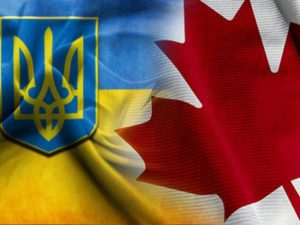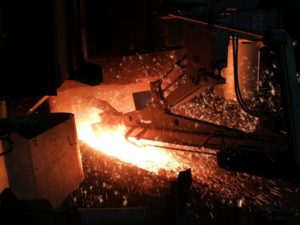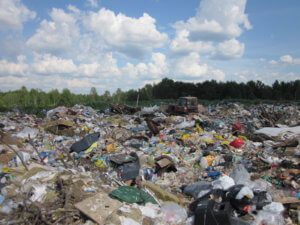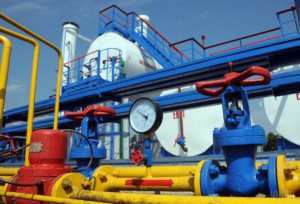
In 2021, Canada and Ukraine will modernize the free trade agreement (FTA), Ambassador of Canada to Ukraine Larisa Galadza said.
“This year will be important because its [the agreement] modernization, including services, is envisaged. Therefore, I look forward to working in this direction,” Galadza said at an online discussion at Kyiv Security Forum on Friday.
She said that Ukraine needs to continue to work towards reforming the justice system.
“This is extremely important for Ukrainian citizens and also for bilateral relations, if we want to strengthen them, especially trade relations,” Galadza said.
The ambassador also expressed her hope that in 2021 there will be an opportunity to simplify the process of travel between Canada and Ukraine. “Connections between people are exactly what shapes our bilateral relations. I mean those people who travel from Ukraine to Canada and vice versa. I think that over the next year we will have opportunities to simplify this process, clarify, something like a normal life after a year that has passed,” she said.
In addition, the diplomat said that on January 1, an agreement between Canada and Ukraine on the joint production of audiovisual products comes into force.
Galadza said that another area of bilateral cooperation between Ukraine and Canada is the continuation of work towards ensuring fairness, accountability, transparency regarding the shooting down of UIA flight by Iran.
“We must ensure justice, transparency for families, and we will continue to work together to make the skies safer for all people who fly and, unfortunately, who have to travel to conflict areas,” she said.
The ambassador said that Canada will continue to stand shoulder to shoulder with Ukraine.
“Ukraine can certainly rely on the fact that Canada will invariably and uncompromisingly support territorial integrity, not only through tactical exercises that we organize for the Armed Forces of Ukraine as they prepare to be deployed in Donbas, but also in the format of multilateral forums and initiatives, like the Crimean platform,” the diplomat said.
She said Canada will also continue to accompany Ukraine on the path of reforms.

The Cabinet of Ministers of Ukraine has decided to approve the attraction of a loan in the amount of EUR 149 million by national energy company Ukrenergo for the project to modernize power lines from the European Bank for Reconstruction and Development (EBRD), the Finance Ministry of Ukraine reported on Thursday. According to the report of the ministry, the project foresees the replacement of transformer equipment and reconstruction of 12 substations with the installation of automated process management systems.
The project would allow the company to increase effectiveness and reliability of electricity transmission in western, northern, southern and central regions of Ukraine, modernize the key power transmission facilities, which is the condition for harmonization of the Ukrainian power grid with the European Network of Transmission System Operators for Electricity (ENTSO-E), the ministry said.

PJSC ArcelorMittal Kryvyi Rih (Dnipropetrovsk region) has signed an agreement worth almost $30 million with the Chinese company CISDI for the modernization of the largest blast furnace (No. 9).
According to a press release of the company, the contract includes the development of engineering, the supply of basic equipment, its installation, supervision and training of the metallurgical plant’s personnel.
It is noted that the company has four blast furnaces, of which DP-9 is the largest one, its useful volume exceeds 5,000 cubic meters. It produces about half of all pig iron at the steel plant and is still considered one of the largest in Europe.
The modernization of the furnace will increase its productivity to 10,000 tonnes of pig iron per day using the existing raw materials and up to 12,000 tonnes using sinter and pellets. ArcelorMittal Kryvyi Rih plans to produce pellets after the construction of a pelletizing plant (the declared capacity is 4.5-5 million tonnes per year). Both projects are the key ones in the enterprise’s investment program for the renovation and construction of production facilities.

The modernization of the waste management infrastructure in accordance with the National Waste Management Strategy until 2030 requires more than EUR 3 billion of investments during 2019-2030, expert for waste management Mykola Doichinov has said at the conference “New Waste Management Policy is a Way to a Circular Economy” in Kyiv. According to the expert, calculations were carried out as part of the development of the National Waste Management Plan until 2030. According to the expert, as a result of the new waste management policy, tariffs for garbage disposal for the population will grow from EUR 0.6 per month in 2020 to EUR 1.4 per month in 2030.
At the same time, the expert stressed the implementation of the new strategy requires intensification of cooperation with international financial donors. At the same time, the state should also extend the responsibility of producers to cover the costs of garbage collection and sorting.
In addition, according to Doichinov, it is necessary to differentiate environmental tax on landfills that do not meet modern environmental requirements. As a result, the use of such landfills will become expensive, while the state will be able to send additional funds received from the tax for the renovation of these territories, the expert said.

Ukrainian President Petro Poroshenko has warned Germany against participation in the Nord Stream 2 gas pipeline project, suggesting, as an alternative, the modernization of a transit gas pipeline passing through Ukrainian territory.
In an interview with German business newspaper Handelsblatt, extracts from which were published by the Ukrainian service of Deutsche Welle, Poroshenko noted that Nord Stream 2 was a political project that is financed by Russia and has no economic justification.
“Nord Stream 2 is a political bribe for loyalty to Russia, imposing an economic and energy blockade on Ukraine, which will hurt us greatly,” he said.
According to him, an alternative solution is the modernization of the existing transit gas pipeline that passes through Ukraine. Poroshenko also said that the development of the gas transportation infrastructure in Ukraine would not require multibillion investments.
On March 27, Nord Stream 2 AG received the permit for the construction and operation of the Nord Stream 2 pipeline system in the German exclusive economic zone (EEZ). The Nord Stream 2 gas pipeline is to pass across the Baltic Sea, connecting Russian suppliers with European consumers at over 1,200 km in length. The pipeline will have capacity for 55 billion cubic meters of gas per year. The project has an estimated cost of almost 10 billion euros. Gazprom’s partners in the project are Engie, OMV, Shell and two German companies BASF and Uniper.
In early April, the Verkhovna Rada urged foreign parliaments, governments and the international business community not to participate in the preparation, financing or lobbying of the construction of the Nord Stream 2 gas pipeline.